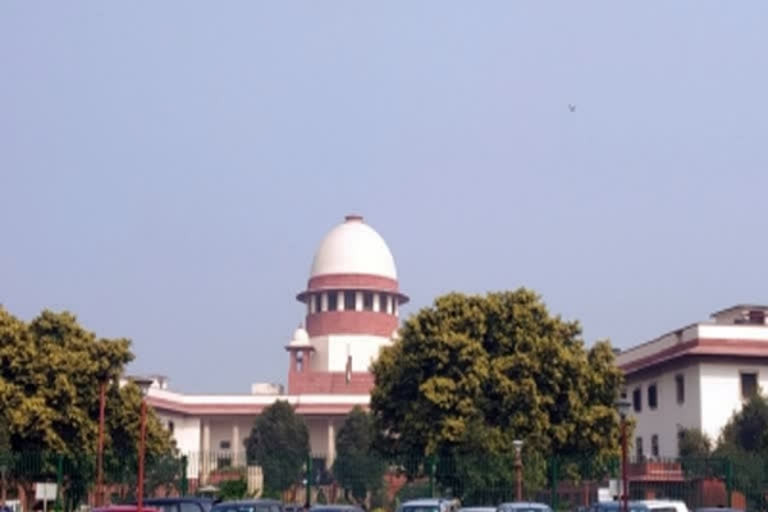New Delhi: The Supreme Court on Friday directed the Delhi government to present an appropriate plan before court and asked the central government to work with the states to provide an adequate facilities to the economically weaker sections (EWS) and disadvantaged group of students for online classes.
The court was hearing petition filed by Action Committee of Unaided Recognised Private Schools regarding access to technology by children who are attending online classes and needs funds for it. It tagged the plea with other similar pleas and requested CJI NV Ramana for its early listing before an appropriate bench so that practical solutions can be found to provide education to the young citizens of India.
The bench led by Justice DY Chandrachud observed that "on one hand we are merging EWS (Economically weaker sections) students with other students and on the other hand there is so much disparity". He asked how the parents of a EWS kid, whose mother is supposedly a house help, arrange for a laptop or tab as the homework and classes have to be uploaded online.
Court observed that, provide an adequate computer based equipment together with online facilities to the EWS and disadvantaged group of students is of "utmost importance". It said that schools increasingly tend to online educate the children to avoid exposure but digital divide produces stark consequences. The EWS and DG students may have to suffer the consequences of not being able to pursue the education or having to drop out, said the court.
When the matter was dealt with in Delhi HC, the schools had told the court that they don't have sufficient funds to provide free facilities and the state had also said the same. However, SC said that "access to education cannot be denied" and the central and state governments need to work in close coordination immediately otherwise the whole purpose of RTE Act of merging EWS students with other students will be defeated. "Central government and state governments have concurrent responsibility," the court added.
Read: Can't protest when the matter is already before court, says SC



